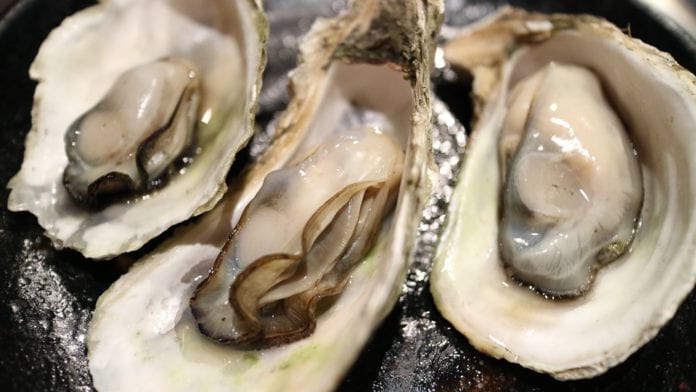Keeping diseases at bay in the seafood industry was the subject of a recent meeting on Pacific Oyster Health between members of Ireland’s oyster farming community and Galway’s Marine Institute.
The Marine Institute presented their latest research on mortality and disease management that are crucial to oyster farmers trying to avoid significant losses in shellfish production.
The event attracted more than 80 participants from Ireland’s oyster farming industry, as well as representatives from Ireland’s Seafood Development Agency, Bord Iascaigh Mhara.
Of big concern to farmers in recent years have been the Ostreid herpes virus-1 and the marine bacteria Vibrio aestuarianus, both of which can cause mass deaths in oyster beds, causing major losses.
Researchers from the Marine Institute and the UCC presented the major findings from the RESPOSUS project focused on reducing the threat to Pacific Oysters from pathogens.
The three year project involved trials in bays that have been hit by diseases, molecular studies of the herpes virus, and examining what environmental factors could impact on the mortality of oysters.
REPOSUS was funded by the Department of Agriculture Food and the Marine’s FIRM programme.
French Institute IFREMER also presented the latest results from the pan-European VIVALDI research project funded by the EU’s Horizon 2020 programme.
VIVALDI combines European research resources to better understand shellfish diseases and improve the sustainability and competitiveness of the European shellfish industry.
The Marine Institute is one of 21 partners involved in this research project.
The importance to the seafood industry of combating diseases was clear to see at the event as members of the oyster farming community shared their experiences of trying to manage massive losses due to disease.
A combination of this fresh research and feedback from the industry will be used to update the current guidelines for disease control and management in Ireland’s oyster industry.












